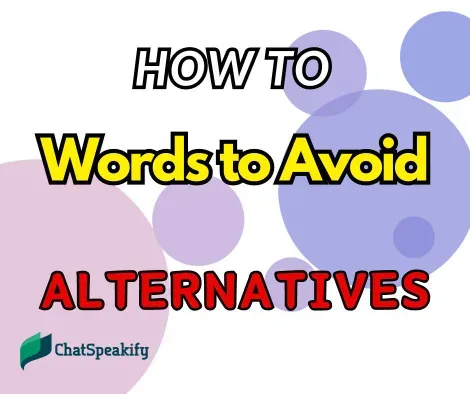Writing is about assembling words and expressing thoughts and engaging with readers. We’ve established the following guidelines and standards to help you write high-quality, captivating articles. Additionally, we provide a list of words to avoid in IELTS Speaking and Writing, along with suitable alternatives, to help you enhance your language precision and sophistication.
Introduction
aging Opening:** I remember submitting an article for publication the first time. Despite my best efforts, the feedback was clear: my writing was cluttered with weak words and phrases. This experience taught me the importance of word choice in creating compelling and effective content.
Article Quality Guidelines
Experience: Use personal anecdotes or real-life stories to illustrate your points, making the article relatable and engaging. For example, share a memorable moment or a challenge you faced that is relevant to the topic.
Expertise: Demonstrate your deep understanding by incorporating relevant data, studies, or research. Use technical terms appropriately, showcasing your grasp of the subject matter.
Authoritativeness: Cite authoritative sources such as academic papers, expert opinions, or reports from reputable institutions to strengthen your content’s credibility.
Trustworthiness: Be honest and transparent in your writing. Avoid exaggerations or false statements, and provide sources or evidence to back up your claims.
High-Quality Article
Clear Structure: Start with a captivating introduction, develop your ideas coherently in the body, and conclude with a strong summary. Ensure smooth transitions between sections for logical flow.
Precise Language: Use clear and rich vocabulary. Avoid vague or overly complex expressions, and maintain correct grammar throughout the article.
Creative Expression: Bring your writing to life with vivid examples, metaphors, or stories. This helps to illustrate your arguments and keeps readers engaged.
Keyword Coverage
Keyword Usage: Integrate major keywords naturally into your article. Avoid overusing them or forcing them into the text unnaturally.
Appropriate Context: Ensure keywords are used in relevant contexts, enhancing the content’s readability and relevance.
Words to Avoid and Their Alternatives in IELTS Speaking and Writing
Improving your vocabulary and precision in language can significantly enhance your IELTS Speaking and Writing scores. Here are some words and phrases to avoid, along with suitable alternatives that will make your responses more impressive and sophisticated.
-
Very
-
Avoid: very good, very bad, very interesting
-
Use: excellent, terrible, fascinating
-
-
A lot of
-
Avoid: a lot of people, a lot of money
-
Use: numerous people, a significant amount of money
-
-
Things
-
Avoid: many things, good things
-
Use: many aspects, positive attributes
-
-
Stuff
-
Avoid: a lot of stuff
-
Use: many items, various materials
-
-
Like (as a filler)
-
Avoid: I was like, It’s like
-
Use: I felt, It’s similar to
-
-
Get
-
Avoid: get better, get worse, get a job
-
Use: improve, deteriorate, obtain employment
-
-
Nice
-
Avoid: nice person, nice place
-
Use: kind person, beautiful place
-
-
Kids
-
Avoid: kids
-
Use: children
-
-
Big
-
Avoid: big problem, big difference
-
Use: significant problem, substantial difference
-
-
Bad
-
Avoid: bad effect, bad situation
-
Use: detrimental effect, unfavorable situation
-
-
Good
-
Avoid: good effect, good result
-
Use: beneficial effect, positive result
-
-
Important
-
Avoid: very important
-
Use: crucial, essential, pivotal
-
Example Sentences
-
Instead of: “A lot of people think it’s a very important issue.”
- Use: “Numerous people believe it’s a crucial issue.”
-
Instead of: “He did a lot of stuff to get a job.”
- Use: “He undertook various activities to obtain employment.”
-
Instead of: “Kids should learn good manners.”
- Use: “Children should learn proper manners.”
-
Instead of: “It’s a big problem that needs a good solution.”
- Use: “It’s a significant problem that requires a beneficial solution.”
-
Instead of: “She has a very nice personality.”
- Use: “She has a kind and pleasant personality.”
Enhancing Vocabulary and Precision
By substituting these common and often overused words with more precise and formal alternatives, you can demonstrate a broader range of vocabulary. This not only makes your language more sophisticated but also helps you improve your lexical resource score in the IELTS exam.
Final Tips
-
Consistency: Apply these changes consistently throughout your speaking and writing to make a stronger impression.
-
Practice: Regularly practice using these alternatives to become comfortable with them.
-
Feedback: Seek feedback from peers or teachers to ensure you are using these words correctly.
Improving your vocabulary and precision can greatly enhance the quality of your IELTS responses, making them more compelling and authoritative.
